
Philippine Journal of Crop Science
Scope & Guideline
Enhancing productivity through groundbreaking crop science research.
Introduction
Aims and Scopes
- Genetic Diversity and Crop Improvement:
Research focusing on the genetic variation among crop species and the development of improved cultivars through traditional breeding or biotechnological methods. - Agronomic Practices and Crop Management:
Studies that investigate the influence of different agricultural practices, including fertilization, irrigation, and pest management, on crop yields and quality. - Plant Physiology and Biostimulants:
Exploration of the physiological responses of crops to various treatments, including the use of biostimulants and fertilizers, and their effects on growth and development. - Environmental Impact and Sustainability:
Research that assesses the environmental consequences of crop production practices, including life cycle assessments, and promotes sustainable agricultural systems. - Crop Responses to Climate Variability:
Investigations into how climatic factors affect crop growth, yield, and quality, particularly in the context of changing climate patterns. - Postharvest Technology and Economic Analysis:
Studies that examine postharvest handling, processing, and marketing strategies to enhance the economic viability of crop production.
Trending and Emerging
- Use of Biostimulants and Nanofertilizers:
There is an increasing focus on the application of biostimulants and nanotechnology in fertilizers to enhance crop performance, indicating a trend towards sustainable and efficient agricultural practices. - Climate Resilience in Crop Production:
Research that emphasizes developing climate-resilient crop varieties and production systems is on the rise, reflecting a growing concern for food security in the face of climate change. - Life Cycle Assessment in Agriculture:
The adoption of life cycle assessment (LCA) methodologies to evaluate the environmental impacts of crop production systems is gaining traction, showcasing a commitment to sustainability. - Nutritional and Health Benefits of Crops:
An emerging trend involves investigating the nutritional properties and health benefits of various crops, reflecting a broader interest in food quality and public health. - Molecular Techniques for Crop Improvement:
There is a notable increase in the use of molecular techniques for plant breeding and genetic studies, indicating a shift towards more precise and advanced methodologies in crop improvement.
Declining or Waning
- Traditional Pest Management Strategies:
Research on conventional pest management techniques has decreased, possibly due to the rise of integrated pest management (IPM) approaches that combine biological, chemical, and cultural practices. - Focus on Non-Commercial Crop Species:
There seems to be a reduction in studies focused on non-commercial or less economically significant crop species, as the journal’s emphasis shifts towards economically vital crops with greater agricultural impact. - Soil Fertility Management Studies:
While soil health remains important, specific studies focusing solely on traditional soil fertility management practices are becoming less frequent, as more research integrates soil health with overall crop management.
Similar Journals
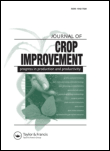
Journal of Crop Improvement
Cultivating knowledge for a sustainable future.The Journal of Crop Improvement, published by Taylor & Francis Inc, is an esteemed platform dedicated to advancing the field of agronomy and crop science. With an ISSN of 1542-7528 and an E-ISSN of 1542-7536, this journal boasts a commendable reputation, reflected in its 2023 quartile rankings—notably, Q2 in Agronomy and Crop Science and Q2 in Plant Science, positioning it among the leading publications within its category. The journal encompasses a wide range of topics related to crop enhancement, sustainable agriculture, and genetic advancements, catering to the needs of researchers, industry professionals, and students alike. Although it currently does not provide open access, the Journal of Crop Improvement plays a crucial role in disseminating pioneering research aimed at improving crop resilience, yield, and quality. By maintaining a focus on innovative studies and empirical findings, the journal supports the global agricultural community in addressing the challenges posed by climate change and food security.

Crop Journal
Unlocking the potential of agronomy for a sustainable tomorrow.Crop Journal (ISSN: 2095-5421; E-ISSN: 2214-5141) is a premier, open access journal published by KEAI PUBLISHING LTD, dedicated to advancing the fields of agronomy and plant science. Established in 2013, this journal has quickly established itself as a vital resource for researchers, professionals, and students, achieving a remarkable Q1 ranking in both Agronomy and Crop Science, as well as Plant Science. With an impressive position in the Scopus rankings—30th out of 516 in Plant Science and 25th out of 406 in Agronomy—it stands at the forefront of scholarly discourse, representing the latest innovations and research breakthroughs within the global agricultural community. The journal embraces a broad scope that encompasses all aspects of crop science, aiming to foster understanding and propel advancements in sustainable agricultural practices. Accessible from anywhere in the world, Crop Journal plays a crucial role in disseminating knowledge that addresses the challenges of food security and environmental sustainability, making it an indispensable tool for those invested in the future of our planet's agriculture.

CANADIAN JOURNAL OF PLANT SCIENCE
Transforming Agricultural Insights into ActionCanadian Journal of Plant Science (ISSN: 0008-4220, E-ISSN: 1918-1833) is a prestigious publication dedicated to advancing research in the fields of agronomy, horticulture, and plant science. Published by Canadian Science Publishing, this journal has been a cornerstone in the Canadian and international scientific community since its inception in 1973. With a solid presence in reputable databases, it ranks in the Q3 category for multiple disciplines as of 2023, reflecting its impact and relevance within the agricultural sciences. The journal serves as a vital resource for researchers, professionals, and students, encouraging the dissemination of innovative findings and fostering collaboration across disciplines. Although it is not an open-access journal, subscribers gain exclusive access to a wealth of knowledge, with articles aiming to enhance the understanding of plant systems and contribute to sustainable agricultural practices. The Canadian Journal of Plant Science remains committed to supporting the growth of plant-related research and its practical applications in today's changing environmental landscape.
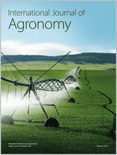
International Journal of Agronomy
Nurturing Ideas for a Greener Tomorrow in AgronomyIntroducing the International Journal of Agronomy, an influential publication in the field of agricultural sciences, established by HINDAWI LTD. With an impact factor that reflects its relevance and quality, this journal has been an essential resource for researchers and professionals since its shift to Open Access in 2009, facilitating widespread dissemination of knowledge. Based in the United States, the journal has achieved notable recognition within the academic community, currently ranked in the Q2 quartile among Agronomy and Crop Science, with an impressive Scopus Rank of #139 out of 406 in its category, representing the top 65th percentile. Spanning from 2013 to 2024, it aims to advance the understanding and innovation in agronomy through its rigorous peer-reviewed research articles, reviews, and case studies. With a commitment to enhancing global agricultural practices and sustainability, the International Journal of Agronomy stands as a vital platform for sharing cutting-edge findings that ultimately contribute to the advancement of the agronomic sciences.
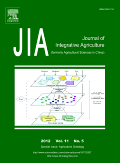
Journal of Integrative Agriculture
Exploring the Future of Sustainable AgricultureJournal of Integrative Agriculture, published by Elsevier Science Ltd, stands as a leading platform for innovative research at the intersection of agricultural sciences. With a significant focus on integrative approaches, this journal has established itself within the academic community, reflecting its excellence through impressive Impact Factor rankings and a consistent Q1 category status in multiple fields, including Agronomy, Animal Science, and Ecology. The journal spans a wide range of topics, making it a critical resource for exploring advancements in Biochemistry, Food Science, and Plant Science. With its diverse Scopus rankings—from Rank #3 in Food Animals to Rank #14 in Animal Science—it serves as a vital repository for cutting-edge research that influences both scientific inquiry and practical applications in the agricultural domain. Operating from China and accessible through open access options, the Journal of Integrative Agriculture aims to foster collaborative research and knowledge exchange among scientists, professionals, and students worldwide, supporting the growth and sustainability of agricultural practices.
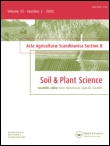
ACTA AGRICULTURAE SCANDINAVICA SECTION B-SOIL AND PLANT SCIENCE
Advancing Sustainable Agriculture Through Soil and Plant ScienceACTA AGRICULTURAE SCANDINAVICA SECTION B-SOIL AND PLANT SCIENCE, published by Taylor & Francis AS, is a distinguished journal dedicated to the fields of Agronomy, Crop Science, and Soil Science. With an impressive impact factor, and categorized in Q2 for both Agronomy and Crop Science and Soil Science as of 2023, this journal is an essential resource for researchers, professionals, and students aiming to advance their understanding of soil-plant interactions and sustainable agricultural practices. Operating since 1992 and continuing through to 2024, ACTA aims to publish high-quality, peer-reviewed research that encourages the applicability of advanced scientific knowledge in real-world agricultural settings. While the journal is not open access, it remains widely accessible through institutional subscriptions, reflecting its commitment to disseminating essential findings and fostering innovation in soil and plant science worldwide. Nestled in the vibrant academic environment of Norway, ACTA AGRICULTURAE SCANDINAVICA serves as a key platform for nurturing groundbreaking research that informs sustainable agricultural policies and practices globally.

Agronomy-Basel
Empowering Innovation in Agronomy and Crop ScienceAgronomy-Basel is a leading international journal dedicated to advancing the field of agronomy and crop science, published by the respected MDPI. Since its inception in 2011, this open-access journal has provided a vital platform for the dissemination of high-quality research, featuring innovative studies and reviews that contribute to the understanding of agricultural practices and crop management. With an impressive impact factor and ranked in the Q1 quartile of its category for 2023, Agronomy-Basel has established itself as a premier resource in the realm of Agricultural and Biological Sciences, achieving a commendable rank of #62 out of 406 in its field, placing it in the 84th percentile. The journal targets researchers, professionals, and students who are dedicated to enhancing agricultural sustainability and productivity. Located in Basel, Switzerland, the journal's commitment to open access empowers global accessibility to flourishing agricultural advancements, thus fostering collaboration and innovation across the globe.
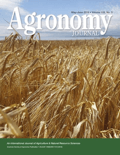
AGRONOMY JOURNAL
Advancing Sustainable Agriculture Through Innovative ResearchThe Agronomy Journal, published by Wiley, is a leading platform for cutting-edge research in the field of agronomy and crop science. Established in the United States, this prestigious journal carries the ISSN 0002-1962 and E-ISSN 1435-0645, with its coverage spanning from 1976 to 2024, showcasing a wealth of knowledge over decades. The journal is recognized in the top quartile (Q1) of its category, making it a highly respected source for quality literature, ranking #108 out of 406 in the Scopus database and reflecting a 73rd percentile standing in agricultural and biological sciences. While it operates under traditional access options, its commitment to disseminating valuable scientific inquiry aligns with the objectives of advancing sustainable agricultural practices globally. The Agronomy Journal serves as an indispensable resource for researchers, professionals, and students eager to stay abreast of significant advancements and discussions influencing the future of crop science and agronomic research.

International Journal of Plant Production
Exploring breakthroughs in agriculture and ecological sustainability.International Journal of Plant Production, published by SPRINGER in Switzerland, serves as a leading platform for the dissemination of innovative research in the fields of Agronomy, Crop Science, and Plant Science. With an ISSN of 1735-6814 and an E-ISSN of 1735-8043, this journal has maintained its reputation by achieving a Q2 quartile ranking in both categories as of 2023, alongside notable Scopus rankings placing it in the top quartiles of its fields (Rank #105/516 and Rank #88/406, respectively). The journal's scope encompasses a wide array of topics vital to sustainable agriculture and plant production systems, making it a critical resource for researchers, professionals, and students striving for advancements in these disciplines. By fostering open scientific dialogue and supporting cutting-edge research, the International Journal of Plant Production is committed to contributing to the resolution of global food security challenges, enhancing agricultural practices, and promoting ecological sustainability.

CEREAL RESEARCH COMMUNICATIONS
Driving excellence in cereal research since 1993.Cereal Research Communications is a premier academic journal published by Springer Heidelberg, dedicated to advancing knowledge in the field of agri-food science with a particular focus on agronomy, crop science, genetics, and physiology. With a strong reputation reflected in its Q2 ranking in Agronomy and Crop Science, this journal serves as a vital resource for researchers, professionals, and students alike. Published in Hungary, the journal facilitates the dissemination of innovative research and practice, covering a broad spectrum from crop genetics to physiological processes, thereby fostering a multidisciplinary dialogue among scholars. The journal has maintained a consistent publication record since its inception in 1993 and will continue its commitment to academic excellence and relevance through 2024. Although it operates under a subscription model, its contributions are crucial for those engaged in improving crop productivity and sustainability. For those looking to connect with cutting-edge research and contribute to the food security dialogue, Cereal Research Communications remains an essential platform in the field.